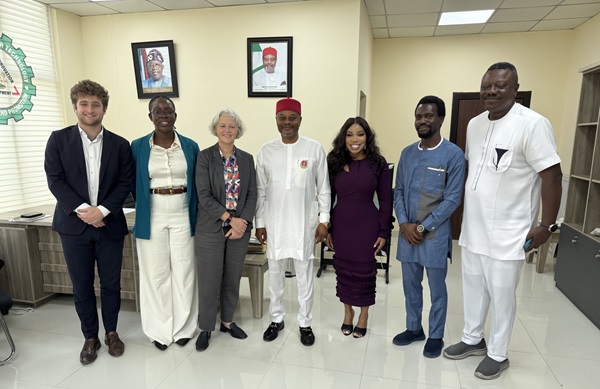
The government of the United Kingdom has reiterated its desire to strengthen partnerships with Nigeria in innovation, research and development to deliver shared prosperity and tackle global issues.
This was disclosed by the UK’s Foreign, Commonwealth and Development Office (FCDO) chief scientific adviser and director for research and evidence, Professor Charlotte Watts, when she arrived Nigeria this week to witness UK-supported projects that are bolstering the country’s science, technology and innovation ecosystem.
During her visit, Watts engaged with project stakeholders, innovators and partners in Lagos and Abuja, exploring the transformative impact of these initiatives on economic growth, job creation and societal challenges in Nigeria.
She visited the University of Lagos and Hinckley Recycling, both beneficiaries of the UK-Africa Technology and Innovation Partnerships (ATIP) programme, funded by the FCDO’s research and evidence directorate. Hinckley Recycling, a UK-supported e-waste recycling facility, develops second-life solutions for lithium-ion batteries. While on site, Watts reaffirmed the UK’s commitment to achieving net-zero emissions and collaborating with Nigerian enterprises like Hinckley Recycling to protect the environment while empowering livelihoods through clean energy solutions for businesses.
She also engaged with stakeholders from Nigeria’s creative ecosystem—spanning music, film, content creation and other sectors—to discuss an ongoing study on the country’s creative landscape. The study was commissioned by the West Africa Research and Innovation Hub (WARIH) with support from the Evidence Fund.
In Abuja, she met with Nigeria’s Minister of Science, Technology and Innovation, Chief Uche Nnaji to learn about the government’s plans to establish a domestically funded Science Granting Council. She also held discussions with the national coordinator of the Presidential Initiative for Unlocking the Healthcare Value Chain (PVAC), Dr. Abdu Mukhtar.
Watts’ visit underscores the UK’s dedication to fostering partnerships in innovation, research, and development to promote shared prosperity and address global challenges. It also highlights the importance of UK-Nigeria collaboration in driving sustainable development and economic growth through innovation and research.


